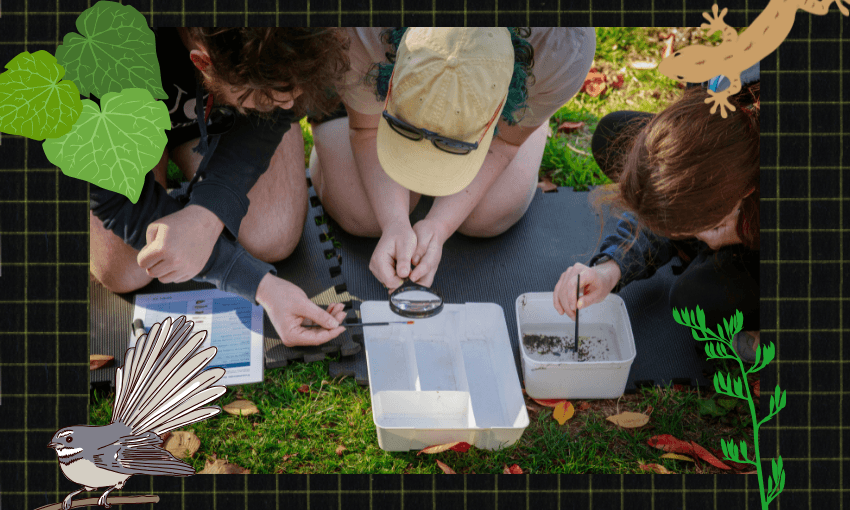After years of quiet preparation behind the scenes, the 2023 Women’s World Cup stage is almost set.
Host cities across Australia and New Zealand are putting finishing touches on stadiums, home bases, and training sites.
The official match ball, tournament mascot, match calendar, ticket packages, and competition branding have all been launched.
And, most importantly, the 32 teams who will take to the field have begun tinkering, tweaking, and testing their players before the spotlight blinks on and the curtain rolls back.
The World Cup, in other words, is starting to feel very real.
And that is exactly what Matildas head coach Tony Gustavsson wants.
Over the past week, in the lead-up to the Cup of Nations friendly tournament that kicks off tonight in Gosford, Gustavsson has spoken about how he and his team are treating this series as a “dress rehearsal” for the World Cup.
From regular media conferences to travel management to player rotations to the deliberate selection of opponents, this tournament is being used to replicate what July’s big dance will feel like so that, when it does arrive, the players know exactly what to expect.
“This is a great opportunity to taste what’s coming in the World Cup 2023,” he said at the squad announcement earlier this month.
“Even this event itself: seeing [media] here, the players and me practising a press conference, going into tournament mode.
“That’s what it’s about now: training for tournaments. Three unique opponents with very different tactical preparation, and being able to do that in a short turn-around […] you have very little time between games, so you need to be able to check out of one game and into another.
“And what a great opportunity to taste what’s coming: to do this with the fans, with media, to do it on home soil and get that tournament feeling going. I’m really pumped.”
Gustavsson has used this language before: just over a year ago, when reigning world champions USA travelled to Sydney for a two-game friendly series, he described the first of those clashes at Stadium Australia as a “dress rehearsal” for the World Cup final: a chance for players to acclimatise to the facilities, the roaring crowd, and the pressure of facing a more-fancied opponent on home soil.
And while that rehearsal did not end particularly well for the Matildas, losing to the USA 3-0, it was one piece of the larger puzzle that Gustavsson has been building over the course of his tenure.
The Cup of Nations is another. And it is arguably the biggest piece yet.
Because unlike the USA “dress rehearsal,” this friendly tournament is not just a one-off game; it will see Australia play three different opponents in seven days in an almost exact mirror of the group stage schedule of the World Cup, which the Matildas must progress through first before even thinking about reaching the final.
Given the tight nature of FIFA windows, with some international players not arriving in Australia until Tuesday night, such a hectic schedule is necessary not only for the players but also for the coaching staff: to adjust tactics and personnel depending on fatigue and small injuries that may have been carried in from overseas, with three players already ruled out from tonight’s opening game against Czechia in Gosford.
Their opponents — Czechia, Spain, and Jamaica — have all been strategically chosen, attempting to replicate the different styles and systems that Australia will face in the group stage.
First up is Czechia, a team known for their organisation, tactical sophistication, and defensive resoluteness. While they didn’t qualify for the 2023 World Cup, Czechia have shown that they are capable of competing with the very best, holding both European Champions England and world champions USA to 0-0 draws last year. Stylistically, Czechia most closely resemble Canada, who the Matildas will play in their third group match on July 31.
Second is Spain, one of the most technically gifted teams in international women’s football. They are, as Gustavsson himself said, “one of the best passing teams in the world” and regularly dominate possession, forcing their opponents to chase their shadows.
For the Matildas, this will be an opportunity to not only exact revenge after their 7-0 loss last July, but also work on their own pressing game: how to control periods of the match without the ball, how to suffocate their best and most dangerous players, and how to attack in transition; elements they expect to recreate against both Canada and the Republic of Ireland in the first group game on July 20.
And third is Jamaica: a team whose physicality in one-on-one duels, dominance in the air, and speed on the counter-attack resembles the style of Nigeria, who Australia will play in the second group game on July 27.
Adapting to different styles and systems won’t just happen in between games, though; it could also happen within each game itself.
One area that Gustavsson has been working on with the Matildas has been in-game management, teaching the players to observe changes to their opponents’ structure and make their own adjustments for themselves, rather than waiting for a half-time team talk.
As he told ABC Grandstand earlier this week: “The team that wins titles — whether that’s in club-land or national teams — has to have that in-game management.
“We spend a lot of time practising that so that everyone sees the same thing. They’re coming from 10-15 different club environments, with different line-ups, different formations, different tactics. We need to have everyone on the same page.
“The international game today is much more flexible when it comes to tactics, so you need to read and feel the game and be able to, on the fly, adjust. Whether that’s preparing for an opponent to play a back four and they come out with a back three, or you plan for a team to park the bus but they come out and press us high.
“Game management is key for us to be successful moving forward, and I think the players have been tremendous in educating themselves in that sense.”
Finally, given this will be the last time Australia will play a three-match series before the World Cup kicks off, this is one of the last opportunities that a number of players will have to make their case for why they deserve to be on the final 23-strong roster.
While there are some obvious locks, question-marks remain around several players who are out of form, on the fringes, or who have not been playing for their clubs at all.
Hayley Raso, Clare Wheeler, Lydia Williams, Charlotte Grant, Alanna Kennedy, Emily Van Egmond, Tameka Yallop, and Emily Gielnik have all struggled for regular minutes during the past three months, whether through form or injury or coach selection, meaning they come into the Cup of Nations without the match fitness of some of their team-mates and could be leap-frogged by more in-form understudies.
“It’s just the reality for any national team coach,” Gustavsson said.
“I have to admit […] I was very glad when they had minutes and were in form. And when they’re not … the players are frustrated about it as well.
“Eighty-five to 90 per cent of all the development happens in clubs, and then [they come] to the national team and we try to do the best that we can with what we’ve got.
“What we have done over these two years is invest a lot in communication and connection with the clubs. At coaching-level, we’ve done analyst-level by sharing video, we’ve done it at sports science-level when it comes to individual programs.
“Because, at the end of the day, we have one thing in common with clubs: we want the players to be fit and available and in form.”
With just three FIFA windows remaining until the World Cup kicks off on July 20, the Cup of Nations presents the last opportunity for Gustavsson and the Matildas and do a full run-through of what they can expect in six months’ time.
If they are able to lift the trophy, all while playing the kind of football we saw towards the back-end of last year in their impressive wins over Denmark, South Africa, Sweden, and Thailand, who knows? Maybe their next World Cup final won’t just be a rehearsal.
Matildas v Czechia
Date: Thursday, February 16
Venue: Central Coast Stadium, Gosford, NSW
Kick-Off: 7.10pm kick-off AEDT
Matildas v Spain
Date: Sunday, February 19
Venue: CommBank Stadium, Sydney, NSW
Kick-Off: 6pm AEDT
Matildas v Jamaica
Date: Wednesday, February 22
Venue: McDonald Jones Stadium, Newcastle, NSW
Kick-Off: 7.10pm kick-off AEDT




















Discussion about this post